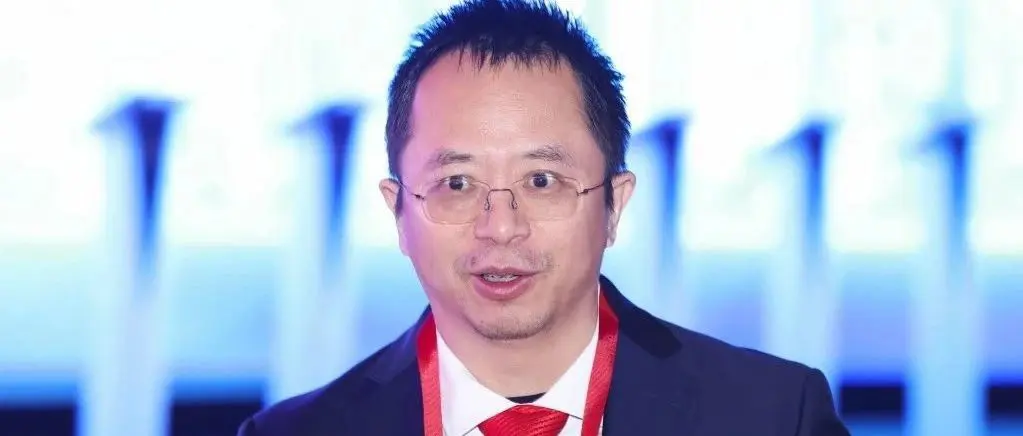"I do not agree!" Zhou Hongyi speaks out →
2024.10.28

本文字数:1539,阅读时长大约2分钟
Introduction: If an industrial revolution is truly sparked in China, it must transform it from an "atomic bomb" into a "tea egg," taking a different path.
Chairman Zhou Hongyi is a "staunch advocate," but he does not agree with the concept of "super intelligence." In a dialogue at the Sina News Exploration Conference this afternoon, Zhou Hongyi mentioned that when he first encountered large models, his initial reaction was: "The intelligence breakthrough is undoubtedly a huge leap, although there are still imperfections, but looking at the development trend, unlike blockchain and metaverse, which are just technological innovations or concepts, it should be on the same level as the Industrial Revolution, the Electrical Revolution, and the Information Revolution in human history."
Although technology has made significant strides in practical applications, he believes that the recent actions have led the industry into a misconception. Not long ago, Altman published a rare long blog post titled "The Age of Intelligence," in which he stated that AI will become a tool to solve difficult problems, helping us build new support structures. It will be possible for everyone to have an AI team, providing personalized guidance and creativity. He also predicted that superintelligent AI could be completed within a few thousand days in the future.
"It seems like the entire world is pooling immense computational power and energy to create a universe-spanning, all-powerful artificial intelligence that knows everything and can do anything, surpassing humans in every aspect, requiring humans to worship it. I don't agree with this idea," Zhou Hongyi said. He added that this is somewhat reminiscent of when computers were first invented, and the then-chairman of the company, Watson, boldly declared that "the world's total demand for computers might only be a few dozen." However, history has proven that the supercomputers did not trigger an industrial revolution; instead, it was the later personal computers, like toys, that entered thousands of households and industries, sparking an industrial revolution.
Therefore, he believes that the industry cannot merely focus on technological innovation. If an industrial revolution is truly to be sparked in China, it must transform it from an "atomic bomb" into a "tea egg," bringing it down from the pedestal and taking a different path. In other words, it is about how to reduce costs to a very low level, enabling every enterprise to integrate and utilize it. If this can be achieved, it will not destroy all industries but will reshape them.
During their conversation, Bai Chongen, Dean of the School of Economics and Management at Tsinghua University, mentioned that the application of this technology can empower humans, making us more efficient and better able to develop; but it could also potentially replace humans. Is silicon-based life really superior to carbon-based? "We hope that we all have a choice, to do more empowering and less replacing of human life's meaning. This may be our ultimate need."
When Bai Chongen mentioned substitution and empowerment, Zhou Hongyi's hand involuntarily touched the microphone. He responded to concerns about whether it might get out of control, stating that the principles of how consciousness arises in humans are not yet fully understood. Currently, large models only simulate a part of the human brain's working principles through software, and the efficiency is particularly low. Therefore, further development may not necessarily lead to consciousness, and there is no need for excessive concern in the short term.
Regarding the future development direction, Zhou Hongyi expressed his own views: it should develop towards specialization. Specialized AI can surpass humans in vertical fields, but it does not pose risks of replacing or losing control over humans. For example, the AI of a company can only play Go, only study protein folding, and has recently been used for intelligent chip design, all of which have achieved significant accomplishments within their respective fields, but do not threaten the overall status of humans.
In fact, from intelligent cockpits to autonomous driving, the automotive industry is already being reshaped. Zhou Hongyi mentioned that with the right methodology, especially in markets like China with complex and comprehensive industrial systems and diverse needs, leveraging empowerment for specific scenarios to directly enhance the production efficiency of traditional enterprises could be the key to the real-world implementation of innovation.
Conversely, Zhou Hongyi opposes the idea of creating a universe-spanning, super-invincible, and highly versatile artificial intelligence. If such a super-intelligent being truly existed, it might be worshipped by humans, but it would also lay the groundwork for potential human control. He worries that if such a being were placed on a god-like pedestal, would humans be obliged to obey any command it issued? This is undoubtedly a question worth deep contemplation.
Zhou Hongyi also revealed that he recently visited the United States and, during exchanges with some experts in Silicon Valley, realized that he had encountered a bottleneck. They found that the (scaling law) did not seem to be working as expected. Even with significant investments in computing power and data, "bringing in a million GPUs" and "using all the data available to humanity," they did not achieve the imagined superintelligent and invincible outcome.

